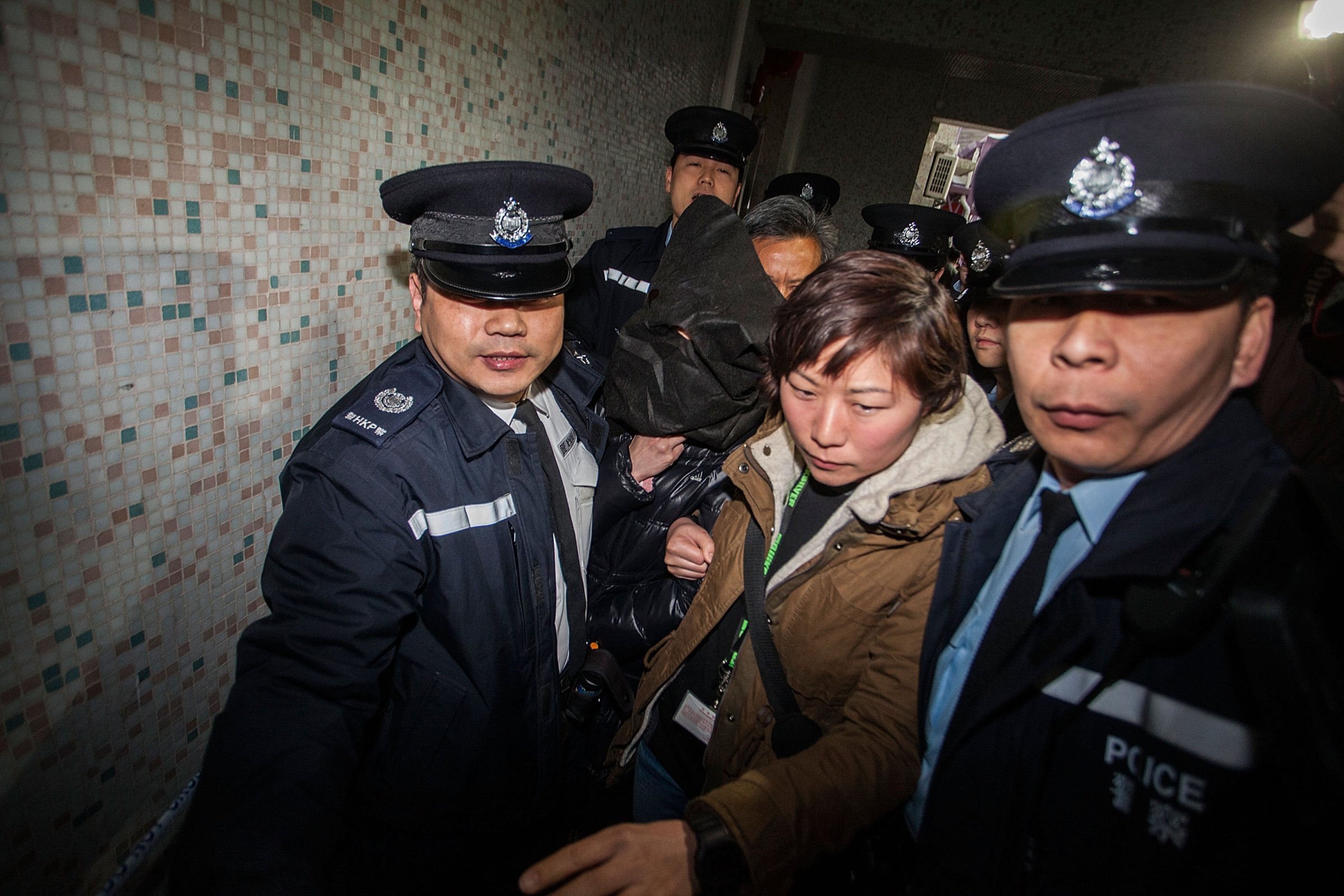
A Hong Kong mother of two who criminally abused her Indonesian domestic helper, Erwiana Sulistyaningsih, was sentenced to six years in prison on Friday, concluding a landmark case that drew international attention to the plight of Hong Kong’s foreign domestic workers.
Judge Amanda Woodcock said, “The defendant had no compassion for the people she considered beneath her. It is regrettable that such conduct, attitude and physical abuse is not rare.”
Law Wan-tung, 44, was also fined just under $2,000.
Earlier in February, Law was found guilty of 18 counts of abuse. Sentencing was extended because her lawyer filed for a psychological review, but no evidence of psychiatric disorder was found.
Tales of the “near daily abuse” suffered by Erwiana highlighted an international problem, with young women often leaving impoverished countries in Southeast Asia to seek out higher wages but finding themselves in vulnerable legal situations that allow agencies and employers to exercise “slavelike” employment practices.
In Erwiana’s case, she was hit so hard that her teeth fractured, had a vacuum-cleaner tube shoved down her mouth, and was starved, forcing her to escape and knock on a neighbor’s door at 2:30 a.m. to beg for help. She also never received a paycheck from Law.
The 24-year-old Erwiana was listed in the TIME 100 in 2014 for her eventual decision to speak up, despite threats made to her family by Law, and was present in court during sentencing.
Speaking afterward through an interpreter, she said, “I do hope this judgment will send a strong message to the Hong Kong government, and governments around the world, to treat migrant workers like human beings.” She added that she now planned to return to Indonesia to study.
Despite problems with illegal “placement fees” that subjugate helpers to debt bondage, a controversial law requiring workers to live with their employers (making them vulnerable to physical and sexual abuse) and multiple accounts of women working unlawful hours, Hong Kong has better legal protections than other countries where Southeast Asian foreign domestic workers are popular.
Nevertheless, in its State of the World’s Human Rights report released Thursday, Amnesty International said Hong Kong’s domestic workers were “heavily indebted” and castigated the Hong Kong government for failing “to properly monitor employment agencies.”
Judge Woodcock opined that abuses could also be curtailed “if domestic workers were not forced to live in employer’s houses.”
Widespread exploitation of domestic helpers in Asia has prompted Indonesian President Joko “Jokowi” Widodo to suggest that Indonesia should no longer send helpers abroad because “we should have some self-esteem and dignity.” However, the notion has been slammed by activists as unconstitutional.
More Must-Reads From TIME
- The 100 Most Influential People of 2024
- The Revolution of Yulia Navalnaya
- 6 Compliments That Land Every Time
- What's the Deal With the Bitcoin Halving?
- If You're Dating Right Now , You're Brave: Column
- The AI That Could Heal a Divided Internet
- Fallout Is a Brilliant Model for the Future of Video Game Adaptations
- Want Weekly Recs on What to Watch, Read, and More? Sign Up for Worth Your Time
Contact us at letters@time.com